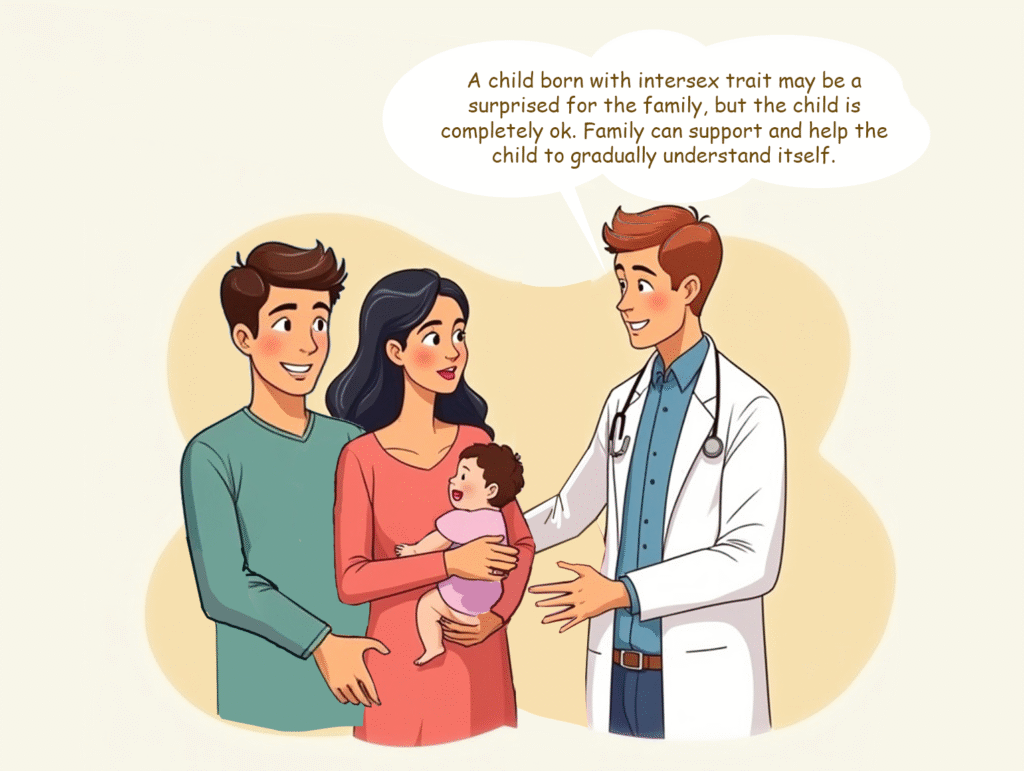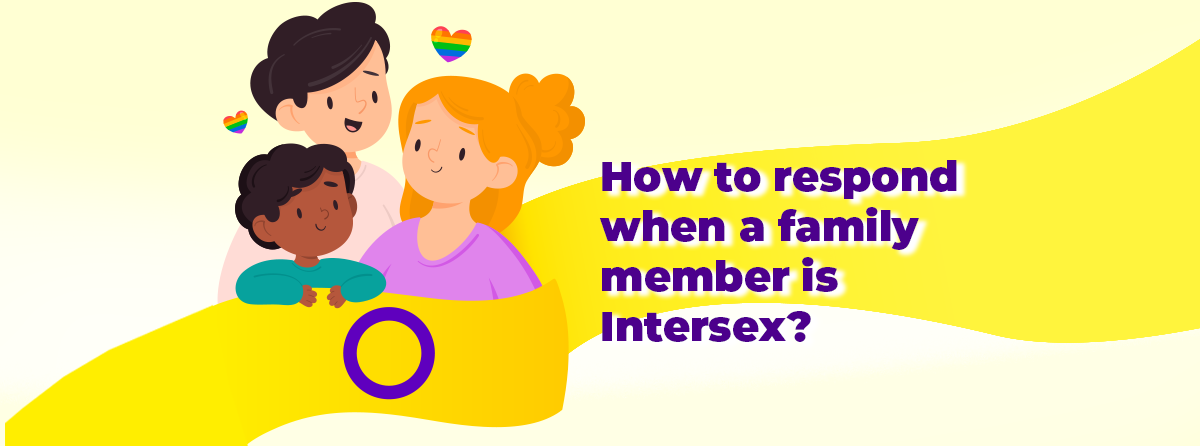Being intersex is never easy. Intersex people often feel confused and lost, but their family members, such as parents, guardians, siblings, would certainly feel even more confused. How can family members respond to this news in a proper and supportive way?
Understanding and addressing the emotions family members experience when learning of a relative, child, or sibling who was intersex involves a multi-faceted approach. This approach could include psychological reactions, effective communication strategies, seeking information and support, and promoting bodily autonomy.
Psychological Reactions
Family members may experience a variety of emotions when they learn that a family member is intersex. Different from the usual LGBT cases, parents or guardians of intersex children may learn about the child’s special sex characteristics very early. Initial reactions can range from confusion, surprise, shock, or even feelings of shame and guilt, often due to societal norms and unfamiliarity with intersex variations. It’s very important to take a step back and educate oneself about intersex issues in order to move beyond these immediate feelings and towards supportive understanding.

- Surprise or Shock: This reaction is common due to unfamiliarity with intersex variations. Despite the unpopular terminology, intersex is not rare. Approximately 1,7 percent of the global population is born with intersex traits. And intersex has existed in history for a very long time. Therefore, it’s not something to be scared about. Starting to research information about intersexuality can help to mitigate these feelings.
- Confusion: It’s understandable to be confused. Most people are used to the binary social norm of male and female. Therefore, first encounter with intersex terminology can be confusing. However, if you are very confused about intersexuality, just imagine your child or family member would be even more confused when they learn about themself. The love, empathy, and proper education on the topic can help you overcome this feeling.
- Supportive Understanding: At the end of the day, it’s very important to remember that families should aim for empathy rather than rejection, and engaging in learning about intersex experiences would be the first step to offer better support.
How to cope with this news?
a-Open and respectful communication
Engaging in open, respectful conversations about the intersex individual’s feelings can greatly improve family dynamics. It’s crucial to initiate these discussions with sensitivity to the intersex person’s comfort levels. In the case of parents/guardians who first learn about their newly-born intersex child, it’s very important to discuss with an expert in this field. It can be a doctor, a counsellor, an intersex activist, or a representative of a local intersex organization.

b-Seeking Information and Support
Parents and relatives should educate themselves by connecting with intersex organizations for information, support groups, and other resources. Talking to experienced intersex adults can help make informed decisions, especially regarding medical interventions.
c-Avoid making surgery decisions
Due to social pressure, many parents may rush to the decision to approve medical intervention for their children. However, unless the surgery is strictly related to life-saving purposes, it’s best not to proceed with any surgeries at this point, due to a lack of understanding about the child’s gender. Instead, it’s advised to continue raising the child and support them to learn about themself. Once the child has fully understood themself, parents and their children can start discussing transition surgeries if the child wants to. Remember, instead of changing the intersex bodies without consent to fit the society, changing society should be prioritized.
d-Managing Disclosure
Families should be cautious and involve intersex individuals in decisions about sharing their information, respecting their privacy, and preferences.
Love starts from home
A supportive family environment, enriched through education, effective and transparent communication with trust, and respect for autonomy, significantly aids the well-being of intersex individuals. Learning about a new intersex family member may be very surprising at first, but it’s important to know that it’s an important journey of accepting, supporting, and loving for everyone. The vision of an equal world for intersex people starts now, in the family!




